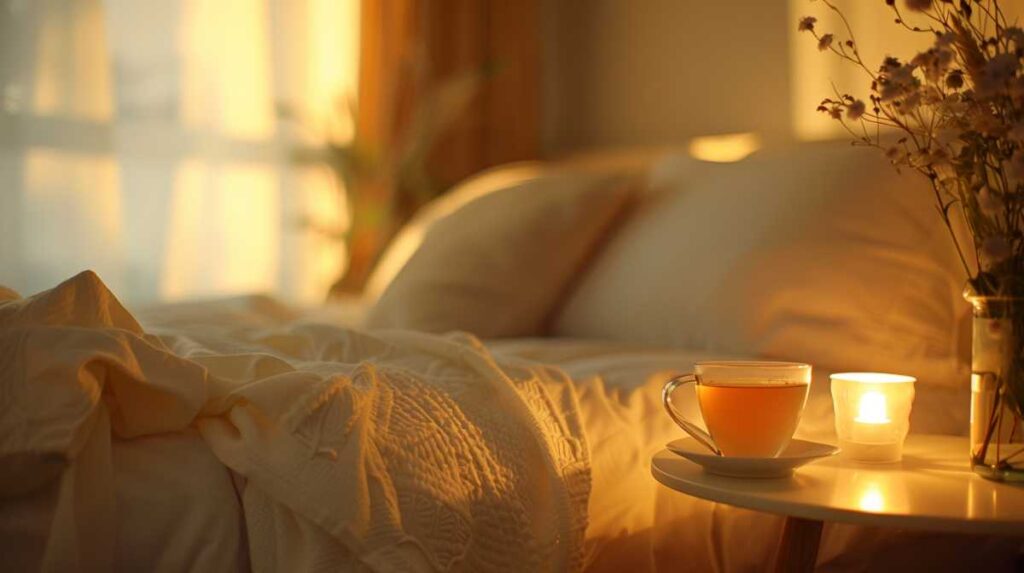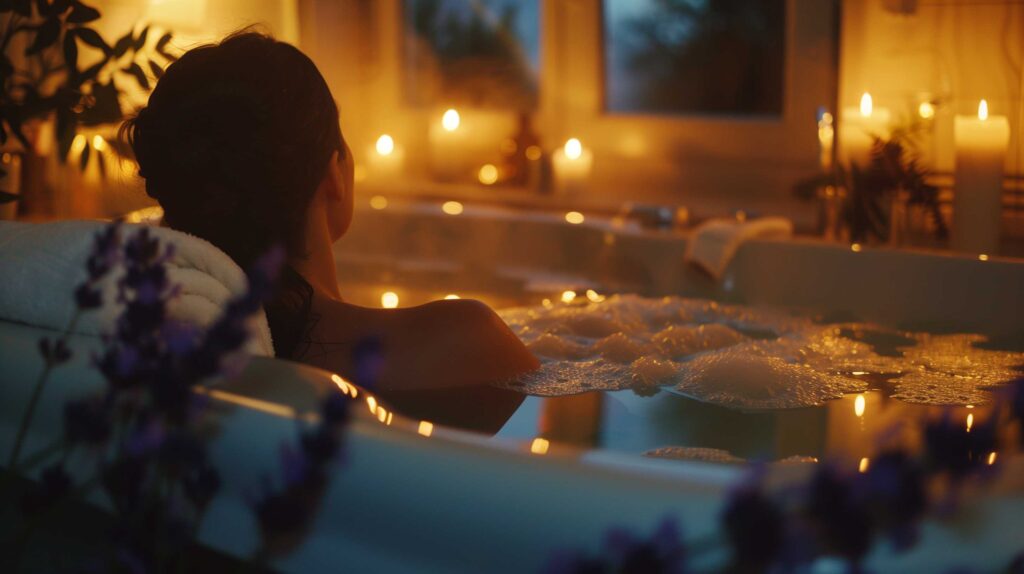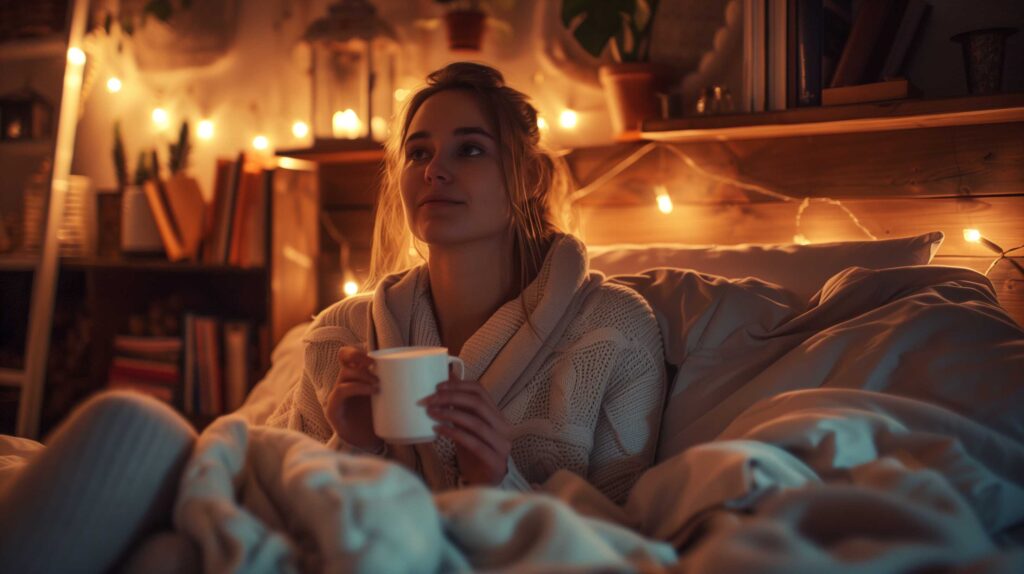![[object Object]](https://localfoodmarketco.com.au/wp-content/uploads/2024/06/Discover-Natural-Melatonin-Alternatives-for-Better-Sleep_LFMC_V1-1024x573.jpg)
Discover Natural Melatonin Alternatives for Better Sleep
Did you know that according to the Sleep Health Foundation (1), up to 45% of Australian adults have problems with their sleep? Lack of sleep can have serious consequences. It can lead to a higher risk of health conditions like type 2 diabetes and coronary heart disease and affect your overall well-being. It’s no wonder that many Australians are turning to remedies like melatonin supplements to help improve their sleep.
Melatonin is a hormone that regulates your sleep-wake cycle. In its synthetic form, it’s a popular supplement that people take to help them sleep. However, it has side effects, which include headache, nausea and dizziness. It can also interact with other medications. For these reasons, many people are looking for natural melatonin alternatives.
In this article, we’re going to find out about melatonin supplement alternatives that can help you sleep. We’ll also investigate ways you can improve sleep naturally so you can get the rest you deserve.
![[object Object]](https://localfoodmarketco.com.au/wp-content/uploads/2024/06/Discover-Natural-Melatonin-Alternatives-for-Better-Sleep_LFMC_V1-1024x573.jpg)
Melatonin for Sleep
Let’s find out more about melatonin, an essential ingredient for good sleep. Melatonin is a hormone produced by the pineal gland in your brain. Its primary role is to regulate your body clock so you go to sleep without difficulty. Levels of melatonin are at their highest at night and drop during the day.
Melatonin supplements can help you with some specific sleep disorders, including:
- Delayed sleep-wake phase sleep disorder:This is when your sleep pattern is delayed by 2 hours or more, so you end up going to sleep later and waking up later.
- Insomnia: Melatonin can help if you have difficulty falling asleep or staying asleep.
- Jet lag: Travelling through time zones can disrupt your sleep-wake cycle. Melatonin supplements can help with symptoms.
While melatonin clearly has a useful role, it does have its limitations. It is usually only recommended for short-term use since it can come with a range of side effects which include:
- Headache
- Dizziness
- Nausea
- Grogginess
Because melatonin makes you feel sleepy, you shouldn’t drive or use machinery within 5 hours of taking a dose.
In addition, you shouldn’t take melatonin supplements if:
- You’re trying to get pregnant, are already pregnant or breastfeeding
- You take certain medications, for example blood thinners or medication for high blood pressure (check with your doctor before using melatonin if you take any medication)
For these reasons, many people are seeking alternatives to melatonin, such as herbal sleep remedies.
Melatonin Alternatives for Better Sleep
The good news is there are several insomnia natural remedies available. In this section, we’re going to list some of the best natural sleep supplements.
Passionflower for Sleep
Passionflower is a plant that is native to the Americas and can be grown all over the world. For many centuries, it has been used in herbal medicine by communities in South America for a variety of reasons.

Passionflower can relieve anxiety by increasing levels of gamma-aminobutyric acid (GABA). This is a mood-regulating chemical. A 2020 study (2) explains more about this phenomenon. This calming effect is linked to better quality sleep.
You can take a few drops of liquid passionflower supplement with your evening meal or drink passionflower tea at bedtime to help you sleep.
Glycine for Sleep
Glycine is an amino acid that helps build protein, collagen and creatine, a substance that supports muscle health. It’s found in high-protein foods such as eggs, dairy products and meat and can also be taken as a supplement.

This versatile amino acid performs other important roles, including aiding sleep. Glycine benefits for sleep include lowering your core body temperature and enhancing sleep quality, as set out in this review (3).
You can get glycine from your diet, for example by eating meat, particularly the tougher cuts. Another way to use glycine to aid sleep is to take supplements before bedtime.
Magnesium for Sleep
Magnesium is a mineral that is essential for many functions of the human body. It keeps your brain and heart healthy, supports muscles and performs many other roles to keep your body in balance.

You can use magnesium for better sleep too. It achieves this in a variety of ways, as explained in Medical News Today (4). It helps regulate GABA and decrease cortisol, the stress hormone, to calm your nervous system. Magnesium also relaxes muscles and stimulates melatonin production.
Eating magnesium-rich food like green leafy vegetables and nuts is an excellent way to get more of this vital mineral into your diet. You can also take daily supplements to up your intake.
Valerian Root for Sleep
Valerian root is an herb that can be found all over the world. Its roots have been used in natural remedies since the time of the ancient Greeks and Romans, notably for supporting sleep.

Valerian root as a sleep aid has been the subject of many studies. One study (5) found that Valerian root supplements helped people fall asleep quicker and sleep for longer.
You can try a cup of Valerian root tea before bedtime or take it in capsule form as a supplement to help improve your sleep.
Lifestyle Changes for Better Sleep
Adopting healthy sleep habits helps improve sleep naturally. Here are some of the ways:
- Practise sleep hygiene. By going to bed and getting up at the same time every day, you help maintain your body’s natural sleep-wake rhythm. Practising a calming bedtime routine, which can involve taking a warm shower or listening to music, is also part of good sleep hygiene.
- Do regular exercise. Regular physical activity is vital for improving sleep quality and reducing symptoms of insomnia. Try to get at least 30 minutes of moderate activity a day and avoid strenuous exercise around bedtime.
- Manage stress. Consider stress management strategies such as meditation and deep breathing as you unwind for bed. Try incorporating mindfulness practices into your everyday life.
- Optimise your sleep environment. It’s important to create a relaxing environment that promotes quality sleep. Keep your bedroom cool, dark and quiet. Blue light disrupts the production of melatonin, so stay away from screens before bedtime or use blue light filters. Use essential oils like lavender or cedarwood in a diffuser to create a calming atmosphere in your bedroom.
Natural Alternatives to Melatonin for Enhanced Wellbeing
While melatonin can be an effective short-term solution to sleep disorders, there are many natural ways to sleep better.
Natural alternatives such as the herbal remedies we’ve highlighted here can be just as useful — with fewer risks and side effects. Lifestyle changes can make a positive difference to quality of sleep too.
If you struggle with sleep, why not speak to your doctor about creating a personalised plan to improve sleep naturally? Armed with the information you’ve learnt here, you can work together to achieve better quality sleep for enhanced well-being.
References:
1. Adams, R., Appleton, S., Taylor, A., Lang, C., McEvoy, R., Antic, N., (2017). Sleep health of Australian adults in 2016: results of the 2016 Sleep Health Foundation national survey, Sleep Health: Journal of the National Sleep Foundation, Volume 3, Issue 1, P35-42, February 2017, DOI: https://doi.org/10.1016/j.sleh.2016.11.005.
2. Fonseca, L., Rodrigues, R., Ramos, A., Da Cruz, J., Ferreira, J., Silva, J., Amara, A., 2020. Herbal Medicinal Products from Passiflora for Anxiety: An Unexploited Potential, The Scientific World Journal, 2020; 2020: 6598434. Published online 2020 Jul 20. doi: 10.1155/2020/6598434.
3. Bannai, M., Kawai, N., 2012. New therapeutic strategy for amino acid medicine: glycine improves the quality of sleep, Journal of Pharmacological Sciences, 2012;118(2):145-8. doi: 10.1254/jphs.11r04fm. Epub 2012 Jan 27.
4. Medical News Today website. Does magnesium help you sleep? August 1, 2023. https://www.medicalnewstoday.com/articles/magnesium-for-sleep
5. Palmieri, G., Contaldi, P., Fogliame, G., (2017). Evaluation of effectiveness and safety of a herbal compound in primary insomnia symptoms and sleep disturbances not related to medical or psychiatric causes, Nature and Science of Sleep, 2017; 9: 163–169. Published online 2017 May 26. doi: 10.2147/NSS.S117770.







